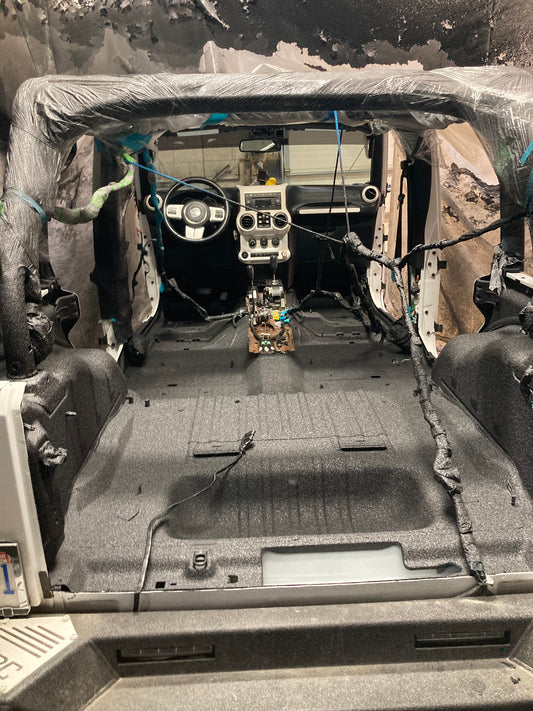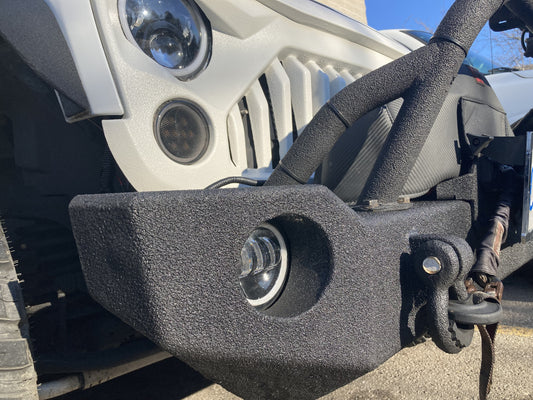Rust Proofing for your Car
What is Rustproofing?
Rustproofing is a preventative measure to protect your car from rust or corrosion. Most people think the only cause of rusting is through water, but there are other things that can cause your car to rust, such as salt and other substances used on the road during winter.
Learn more on how you prevent rust from ruining your vehicle.
Benefits of Rustproofing Your Vehicle With Cobra
- Rustproofing your car extends its lifespan by properly protecting its undercarriage, body panels and mechanical parts.
- Rust-free cars have a higher resale value.
- Save money on repairs due to rust damage, such as damage to your brake lines and cables.
- Keep your vehicle safer for longer; over time, rust will compromise your vehicle’s structure.
Why Choose Cobra for Rust Proofing Services?
- Cobra has been providing car and truck accessories and services for more than a quarter-century to hundreds of pickup truck and car lovers.
- We are experts at what we do including Rust Proofing,
- We offer top-notch service with our friendly and dedicated staff.
- We can help guide you through the best options to fit your unique needs.
* $50 Non-refundable deposit required when Booking appointment
* Rebooking requires 24 hours notice
Is Rust Proofing Necessary on New Cars?
If you're about to buy a new car in Canada, you may be wondering if rust proofing is necessary. You may also be wondering how much it costs, and whether it's worth it for your car. Here's some advice. Read on to learn if it's a necessity and why it may not be worth it.
Whether Rust Proofing is Necessary on New Cars
If you are looking to buy a new car, you might be wondering whether it needs rust proofing. While it is true that rust can develop on steel, new car manufacturers are now getting better at slowing the process. This process involves cleaning the metal body with a chemical bath and applying a coating. Then, a low voltage electrical current is applied to it to prevent it from rusting. This process is done before the paint and clear coat are applied to the car. Manufacturers also seal up the places where water can get into the steel body.
Fenders & Wheel Well
For Canadians wondering if they should rustproof their vehicle, the fender and wheel well are often problem areas that require preventive work. The metal material in this area is under continual assault from external debris and substances moving at high speeds, which will break down the paint’s protective barrier with time. There is also the constant vibration, which opens cracks in welded seams and sealed areas. This area is not immediately visible, so it may end up neglected when it comes to rust protection. However, during the winter months, the undercarriage is frequently exposed to moisture, salt and other chemicals. Once this area begins to rust, the problem quickly spreads to other areas.
Rustproofing is not a simple process. New cars are usually made from galvanized steel that is coated with a zinc layer, which greatly reduces the risk of rusting. However, rust can still form due to paint chips, scratches, and salt, which can all cause your car to rust. Whether rustproofing is necessary on a new car depends on several factors, including the climate, terrain, and the amount of driving.
Rustproofing is an optional service offered by many car dealerships and independent auto repair shops. It is an excellent way to slow down the corrosive process of the metal. The Most effective rustproofing procedures involve spraying an oil based solution on the undercarriage and inside body panels. An annual oil based product will contain a rust inhibitor, an additive causing it to creep and penetrate the tiniest crevice, something to displace any moisture and a tackifying agent to enhance adhesion to the metal. By repelling moisture and stopping the corrosive effect of salt and other agents, it protects your vehicle from rusting. Some shops also use undercoating, which involves spraying the car with a black tar-like substance that hardens once it dries. Such products require continuous, unbroken coverage and do not penetrate those concealed areas of your car. While rustproofing may not be immediately necessary on a new car, it is best to protect the car from salt and harsh winter weather before it starts.
Effective Rustproofing will increase the life of your car and increase its resale value. It protects the entire body of the car, including the underbody.
Rust Proofing FAQs
Do I have to Rustproof my car?
If you want to prolong the life of your car, increase the resale value and/or reduce repair costs, then yes. Manufacturers have improved the quality of vehicles, but they still have a limited time before repairs and rust ultimately send them to the scrap yard.
What is the cost of rustproofing my car?
Rustproofing a new car at the dealer will add hundreds of dollars to the total price. Dealers will charge from $750 to $1,000 for rust protection and will require some form of maintenance or inspection on an ongoing basis. Some dealers offer electronic modules that have been proven not to work. Shops providing Annual Rust Prevention treatments will charge $140 to $170. Remember though, this is a process repeated every year for the best results. It is also the only process that will reduce the spread of rust on used vehicles.
There are a number of methods for rust proofing a new car. The most effective method is the application of an annual petroleum-based oil spray. These products coat the metal parts of the car and do not dry out. This process typically takes one to two hours to apply. Experts agree the best protection includes a highly penetrative product in the doors, engine compartment etc. and a drip-free spray on the undercarriage.
There are situations where rust proofing a new or used car may not be critical; in a dry arid climate for instance. For most of us, Rustproofing a new car will help protect it for years to come and will increase its resale value. How long you plan to keep the vehicle and its resale value will determine whether rust proofing is worth the cost. The advantage of an Annual Rustproofing process is you can stop at any time and so reduce your cost. There will still be residual protection in many parts of your vehicle after you stop spraying your car.
Rust is the result of water and salt combining to create a solution which enables rust to form. The metal erodes leaving holes and weakened structural members. In severe cases, it can result in rotted frames, broken coil springs, and leaking brake lines.
What is the best Rust Proofing process?
Annual rust prevention treatments, One Time applications and Electronic modules are the three main rustproofing methods. Assuming a quality product and a competent technician:
-
Annual rustproofing is the most effective, because it penetrates barely accessible crevices.
-
One Time applications are effective on areas you can see but barely coat those you cannot see.
-
Electronic modules are easy to install and very profitable but have continually been shown not to be effective.
When is the best time of year to Rustproof a car?
There can be some seasonal advantages to rustproofing your car at certain times of the year. However, as soon as possible is more important than the time of year. The quality products have additives to allow spraying vehicles at all times of the year. If practical, treating a vehicle when it is dry means you need not rely on the water displacement additives to ensure the product bonds to the metal. Hot weather allows for greater atomization of the spray, resulting in higher penetration and coverage of the vehicle.
Must you drill holes when Rustproofing a car?
If you do not get into an enclosed area, you won't stop rust. When adding access holes, the process must include rust prevention treatment of all drilled holes before they are sealed.
How long does it take to Rustproof a car?
Generally speaking, the treatment will take between one hour (Annual rustproofing) and two hours (One Time rustproofing) to complete. Electronic rustproofing takes 30 minutes but as noted above has been shown to be ineffective.
When can I wash my car?
You will be able, and we recommend you wash your car shortly after the treatment. In the case of an Annual rustproofing treatment, we recommend a thorough second wash 10-14 days after.
Is Protectoil Rustproofing toxic, or does it smell?
Absolutely not; our treatment is not toxic, nor does it smell. There are no health or flammability hazards, nothing to be concerned about. Forty years on the job have confirmed this.
What Is The Best Rustproofing Available?
- It must be an oil based product with a Rust inhibitor, a penetrating additive, capable of displacing water and a tackifying agent.
-
Two unique products should be sprayed. One highly penetrating and the other non dripping.
- Access holes must be drilled. If you cannot spray an area, you cannot protect it.
- All drilled access holes must be treated with a rust prevention product.
- For lasting results, the rustproofing should not be just a one time treatment.
- A rustproofing shop that has a history of experience is preferred.

Ford F550 Super Duty
This Ford F550 work truck had the rear bumper sprayed as well as inside the bed.

Jeep Wrangler Interior
This Jeep Wrangler had the entire interior covered in our spray liner. Ready for the trails!

Jeep Wrangler Bumper
This Jeep Wrangler had the front bumper spray lined. No more stone chips and rust on this bumper!

